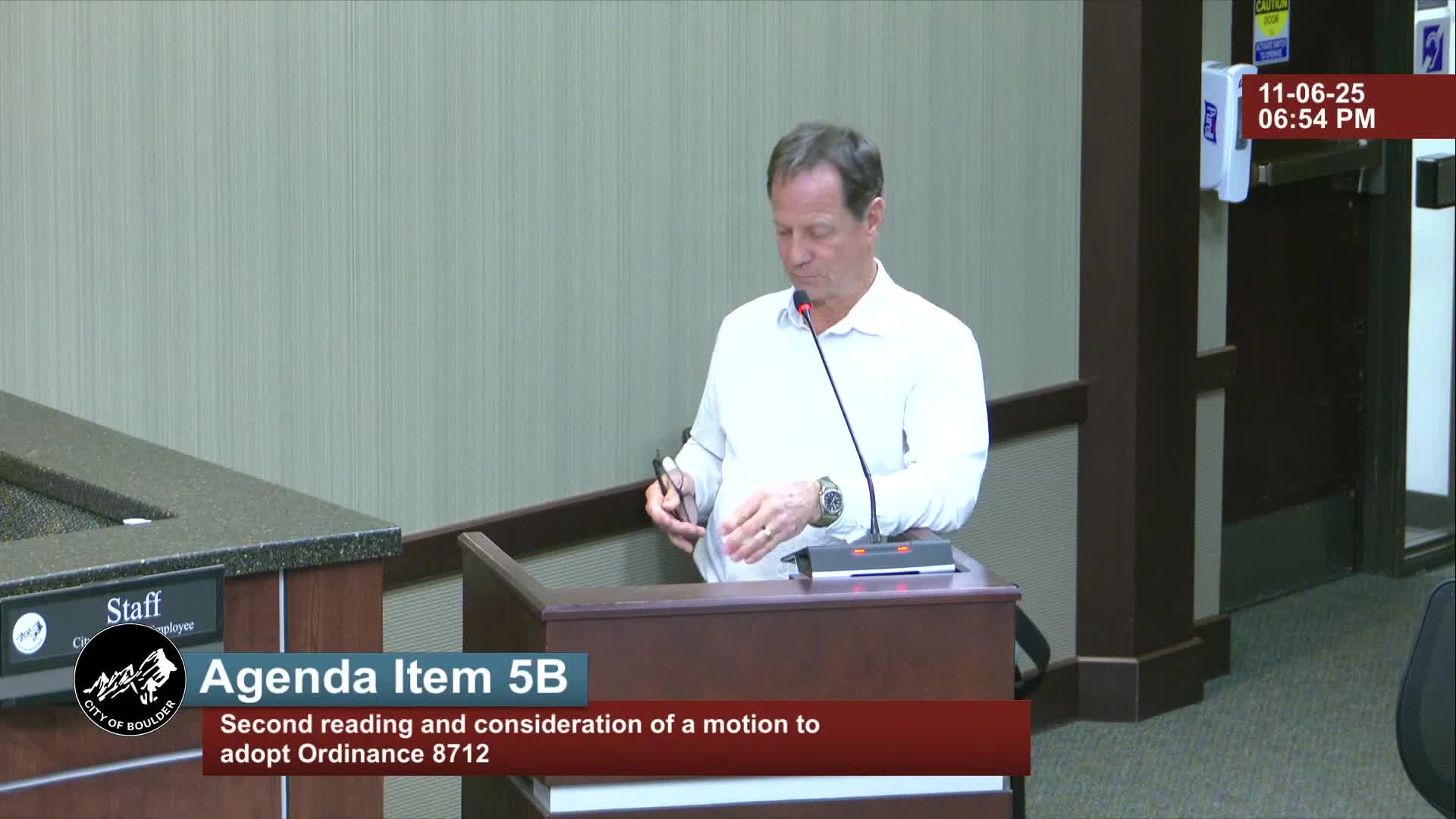Boulder council adopts fee on single‑family redevelopments to fund affordable housing; 7–2 vote
Get AI-powered insights, summaries, and transcripts
Subscribe
Summary
Boulder City Council on Nov. 6 adopted Ordinance 87‑12 to charge $11 per square foot on certain single‑family home replacements and substantial additions to fund affordable housing, while exempting homes under 2,000 square feet, ADUs and the first 500 square feet of additions.
Boulder City Council on Nov. 6 adopted Ordinance 87‑12, creating a new affordable‑housing impact fee on certain single‑unit demolitions, replacements and substantial additions, after an extended public hearing and debate.
The ordinance sets a flat fee of $11 per square foot of newly added floor area for qualifying projects; projects receive a credit for the square footage of an existing home and the first 500 square feet of an addition is exempt. Homes under 2,000 square feet and accessory dwelling units (ADUs) are exempt. Staff said the fee reflects the lowest impact fee supported by a Nexus study that analyzed how redevelopment and additions affect demand for local workforce housing.
Why it matters: Staff and several public commenters said the current code created an equity gap in which new homes on vacant lots paid into the city’s inclusionary housing fund while many replacement homes and large additions did not. City staff estimated the new fee could generate about $1.2 million a year to be dedicated solely to affordable housing construction, purchase and maintenance; staff also noted the figure does not include potential enforcement‑related shortfalls.
How the council decided: Staff presented the Nexus study and a year of public engagement; Sloan Walbert, inclusionary housing program manager, summarized the study and the proposed rules before the hearing. Speakers at the public hearing were divided: affordable‑housing advocates, housing‑policy experts and residents supporting the measure argued it would close a loophole and produce predictable local funding for permanently affordable units; builders and some homeowners urged larger exemptions for modest additions and warned of impacts on middle‑income families and local trades. Councilmembers asked detailed questions about credits, enforcement, revenue assumptions, and whether the exemption thresholds were set appropriately for homeowners who want to age in place.
Outcome and implementation: The ordinance passed on second reading by roll call, 7 in favor and 2 opposed. The city directed staff to implement the new fee structure, begin outreach and monitoring, and report back if adjustments are needed. The ordinance sets an effective date (staff proposed Jan. 31) to provide time for implementation and for builders and homeowners to plan. The city clerk recorded the roll call and certified the 7–2 result.
What remains: Council members who opposed the measure said they support the concept of capturing redevelopment revenue for housing but wanted higher exemptions to avoid burdening homeowners making modest additions to remain in place. Staff said the fee and exemption thresholds were set after analyzing construction costs, home size distributions and the Nexus study; they also cited a policy choice to start at the lowest justifiable rate and monitor effects. Staff and councilmembers agreed to track implementation and return with data and possible adjustments.
Provenance: Staff presentation and legal framework summarized from staff remarks beginning at 01:26:14 and council discussion and roll call recorded through adoption at 02:52:28.
